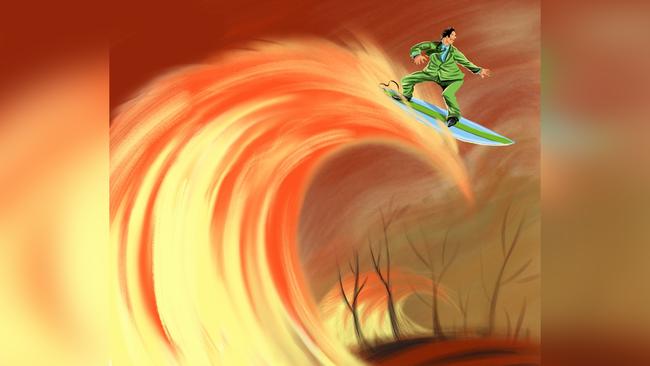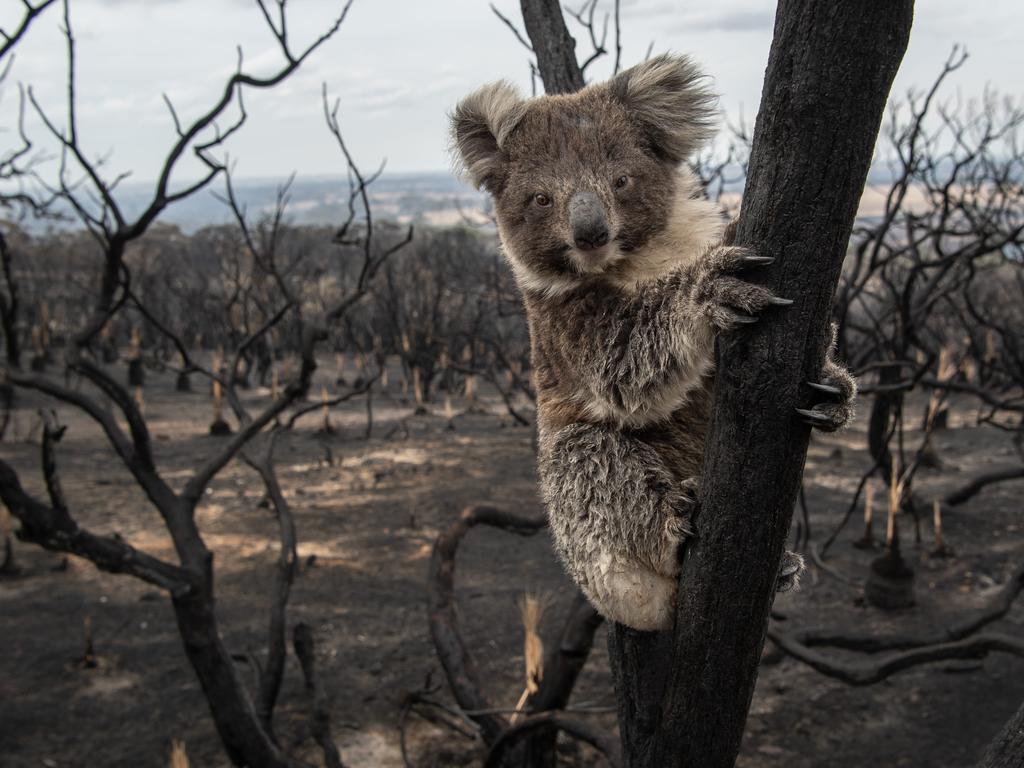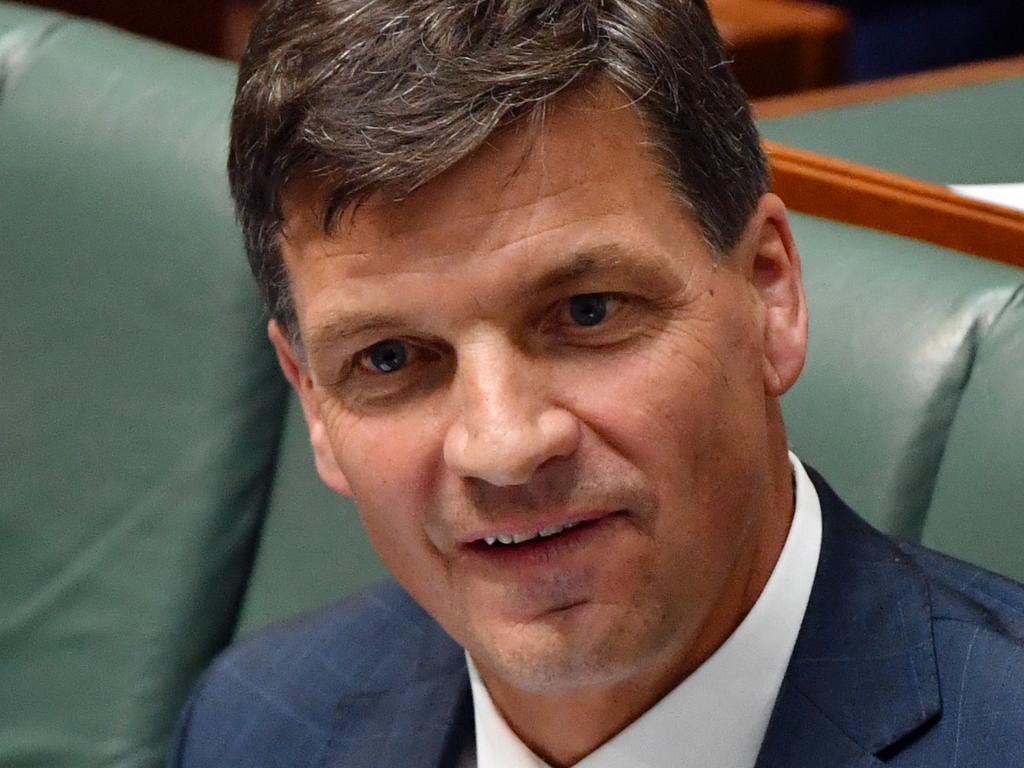
Amid the terror of the season’s fire disaster, people are grieving for what is lost, angry about what they cannot control and afraid of what might come. Green-left politicians are using the fear for political gain. The green-left media is drumming up conspiracy theories that blame conservatives for the weather, the fires, dry earth, scorching wind, death, destruction and doomsday scenarios of some hypothetical future dystopia. My present favourite is a Guardian article on the fire tragedy that leads with: “Australia is built on lies, so why would we be surprised about lies about climate change?”
As a first-generation immigrant, I have seen a fair share of Australian bushfires. I was a kid growing up in Adelaide when the Ash Wednesday bushfires took 75 lives. On Black Saturday in 2009, I was closer to the tragedy.
Victorians woke up to winds so hellish they broke the backs of saplings, stripped the air of moisture and seared our skin. When the first fire sirens went off in the morning and fire trucks roared down the street, I was doing the weekly shopping. People stopped, looked at each other and said it wasn’t going to be good. But we had no idea what was coming. By late afternoon, we were bunkered down. By early evening, I was glued to ABC radio.
Neighbours were preparing to leave. I was urged by friends to evacuate after my suburb was included in warnings issued by the Country Fire Authority. For some it was too late and many left only after hearing reports that people were dead in Kinglake, about 55km northeast of Melbourne, and that the fires had reached nearby St Andrews. I fled for the city as the fire developed into a storm that threw embers kilometres ahead of the front.
The shock of Black Saturday was a strange thing. I thought I was perfectly fine until feeling a sudden urge to stop on the Eastern Freeway into the city. I pulled over, walked to the side of the road and was violently ill. When I arrived at my friends’ house in North Fitzroy, they poured a whisky and sat me down. They said I was in shock, but I reassured them it was not the case. After settling my pet and opening my suitcase, I realised they were probably right. The contents of the case were absurd and I had no memory of packing them only a few hours earlier. I had taken nothing of financial value or practical utility. Instead, what lay before me was a half-empty suitcase with a pair of socks, books and a clock radio laid out on the base. All I could do was laugh. It was simply bizarre.
When I returned home the following week, the hills were like a wasteland. My suburb had been saved by a wind change. But in the surrounding areas, people were stricken with grief. The usually friendly towns were laid low and an uneasy quiet hung in the air. People walked the streets saying little and staring into the middle distance. Some were looking for missing loved ones or pets. Everyone knew someone who died. The atmosphere had an ashen quality, as though a grey veil had settled to protect the present from the past.
Amid the panic and tragedy of devastating wildfires, what we needed most was immediate relief in the form of care, reassurance and simple kindness from friends, family and employers. The communities directly affected needed swift aid and financial support. Everyone needed something a little different. But what we didn’t need was cheap politicking.
The Prime Minister and the Opposition Leader have taken the higher ground in recent days by agreeing that a royal commission into the fires is a sound idea. The bipartisan approach is constructive and should produce useful recommendations if the terms of reference are set well. The green-left is looting low-hanging fruit by making political capital out of the national disaster. The major parties should leave the scavengers to their ghoulish feast and concentrate on the question of what caused the major fires and how to mitigate risks in the future.
The 2009 Victorian Bushfires Royal Commission unearthed the causes of the fire and the institutional failures that enabled it to spread without adequate warning to communities at risk. Yet despite recommendations on regular backburning to reduce fuel load, some areas between St Andrews and Kinglake appeared to be overgrown when I last drove through the area in 2018.
A central challenge of any future royal commission will be to create an enforceability mechanism to ensure fuel load is kept at a minimum while conserving the natural environment in fire risk areas. As Rachel Baxendale reported on Friday, the Victorian government has not undertaken fire reduction measures consistent with the Victorian Bushfires Royal Commission. The state Labor Party that encourages activism and blames natural disasters on climate change is neglecting its basic duty to keep Victorians safe.
The government does not control the weather. It cannot stand guard at every home while fires rage. It will never be responsible for every inch of land in the country because Australians believe in private property and the responsibility home ownership entails.
Politicians who use climate change to divert attention from their failure to enact bushfire prevention plans should talk less and do more to help communities in need. Reducing fuel load is something state and local governments can do as a matter of routine. It may not make for lively conversation with cosmopolites but it will save lives.







Wildfire is natural, cyclical and regenerative. Australian flora has adapted to survive bushfire and some indigenous species thrive on it. However, the ferocity of recent fires that scorched the country is shocking. The recovery will be painfully slow for those directly affected. Communities will be rebuilt or left behind as people seek safer ground. As city folk return to work, they will forget. But for people in disaster zones, the fires will stalk them by day and haunt them by night until they burn out or the rain comes.